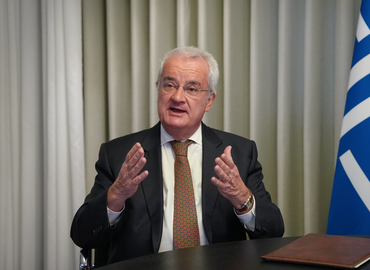KEEPING FAITH IN DIALOGUE: KAICIID Elevates Spiritual Diplomacy at UNGA80
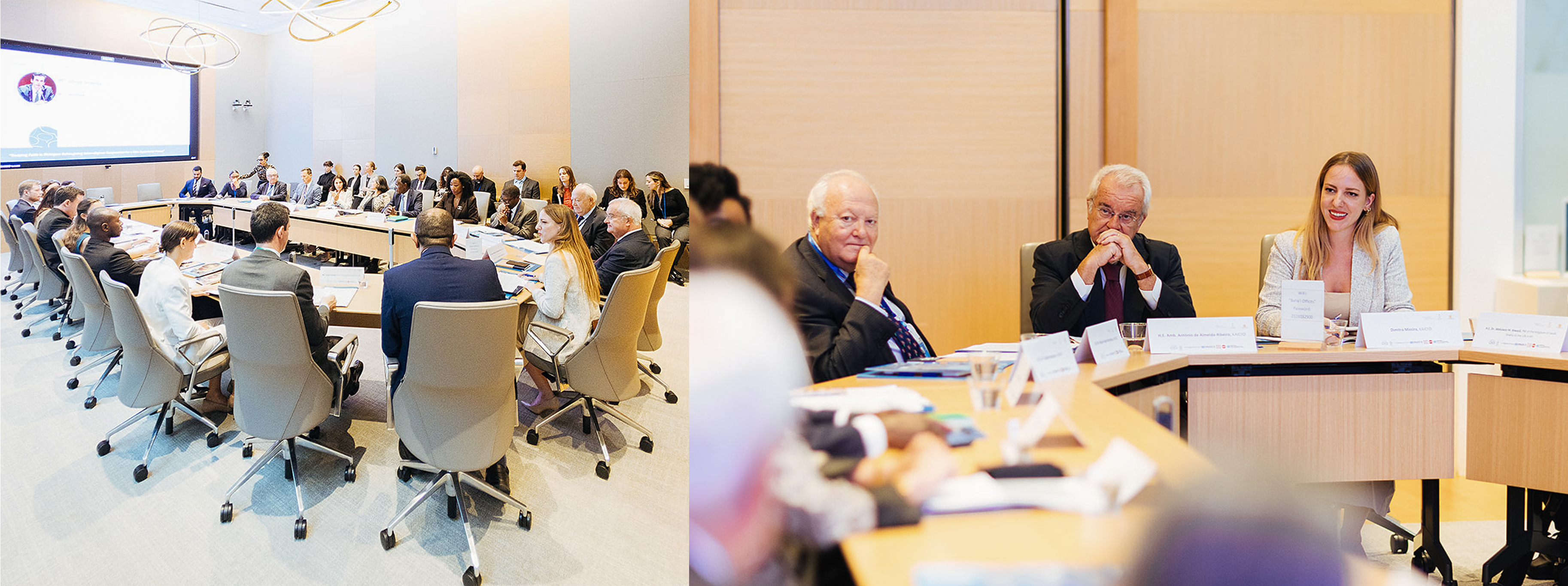
From roundtables on gender equality and scaling interreligious cooperation in support of the New Agenda for Peace to a renewed partnership with the University for Peace, KAICIID’s week-long engagement at the 80th session of the UN General Assembly affirmed its belief of the importance of multi-stakeholder cooperation.
New York, 20–26 September 2025 – In a world confronted by deepening fragmentation, KAICIID’s Outreach Mission to New York on the margins of the 80th UN General Assembly (UNGA80) offered a compelling case for dialogue as a tool and path for peace. Over the course of a week in New York, the Centre co-organized and co-led a series of initiatives that brought together UN officials, Member States, religious leaders, and civil society to reimagine interreligious cooperation in response to global challenges.
At the heart of the mission was a high-level side event, “Keeping Faith in Dialogue: Reimagining Interreligious Cooperation for a New Agenda for Peace”, co-organized by KAICIID and the Multi-Faith Advisory Council (MFAC) to the UN Inter-Agency Taskforce on Religion and Sustainable Development, in cooperation with the United Nations Alliance of Civilizations (UNAOC), the United Nations Population Fund (UNFPA), Office of the UN Special Adviser on the Prevention of Genocide (OSAPG), Religions for Peace (RfP), and co-sponsored by the Permanent Missions of Austria, Saudi Arabia, and Portugal.
We are meeting at a time when the world is deeply wounded not only by visible conflict but by a deeper erosion of the moral and humanitarian principles that have bound our societies together,” said the Acting Secretary General (ASG) of the International Dialogue Centre – KAICIID, António de Almeida-Ribeiro, opening the event. “Keeping faith in dialogue is a daily choice. Dialogue builds relationships that withstand crises. It enables societies to bend without breaking.
In his keynote, Under-Secretary-General H.E. Miguel Ángel Moratinos introduced spiritual diplomacy as a complement to statecraft: a diplomacy of conscience that draws on faith leaders’ moral authority to open doors when official diplomacy stalls. He reminded participants that dialogue is not a one-off exercise but “a discipline of daily engagement,” essential to resisting polarization and rebuilding a culture of convivencia.
The event was graciously hosted by the Bahá’í International Community’s UN Office, provided an inspiring setting for theover 230 participants attending the event in person and online.
The panel discussion surfaced field-tested insights from practitioners, the esteemed panellists:
-
Dr. Nkeiruka Didigu, UN-IATF Co-Chair, Senior Strategic Partnerships Specialist and Faith, Religion and Culture Lead for the United Nations Population Fund (UNFPA),
-
Dr. Mohamed Elsanousi, Executive Director of the Network of Religious and Traditional Peacemakers,
-
Ms. Bani Dugal, Principal Representative of the Bahá’í International Community to the UN and Co-President of Religions for Peace,
-
Fr. Stephen Ojapah, KAICIID Fellow and Catholic Priest for the Missionary Society of Saint Paul of Nigeria, and
-
Dr. Liliya Khasanova, Executive Director for A Common Word Among Youth (ACWAY).
Each panellist reflected on their personal experiences in faith and peacebuilding. Dr. Didigu underscored that women’s leadership and bodily autonomy are foundational to peace. Dr. Elsanousi highlighted the Peacemakers Network’s efforts to promote the meaningful participation of women and youth in peace processes, affirming the vital role of religious and interreligious communities in achieving just and lasting peace. Ms. Dugal emphasized the Bahá’í principles of unity and compassion, while Dr. Khasanova advocated for youth and grassroots leadership. Fr. Ojapah shared a deeply moving personal testimony on the power of forgiveness in even the most harrowing circumstances, further detailed in his memoir Tears and Torture: 33 Days in Kidnappers’ Den.
Faith leaders should never underestimate the power of forgiveness,” said Fr. Ojapah. “One remark from a local cleric can reset years of peacebuilding. Local organisations providing trauma counselling are struggling. International partners can support them to scale up essential, context-specific interventions.
The session concluded with a keynote from Dr. Chaloka Beyani, UN Special Adviser on the Prevention of Genocide, who committed to deepened collaboration with religious communities:
Indifference in the face of injustice is not only morally, but also politically and legally unacceptable,” he warned. “Preventing genocide is at the core of reimagining a fairer, more just world. Investing in spiritual diplomacy is essential.
Rev. Mike Waltner, KAICIID’s Head of Capacity Building and Oversight, distilled the event’s insights into three guiding imperatives:
Broaden participation. Expand leadership. Sustain commitment. If we carry this spirit beyond today, dialogue will remain one of our strongest tools to resist division and to build peace that lasts.
Dialogue Rooted in Inclusion: Gender and Youth at the Forefront
Earlier that day, KAICIID, through its co-chair role in the MFAC Gender Working Group, led the roundtable “Side by Side: Connecting Sacred Dialogue and Responses in Promoting Gender Equality and Human Rights”, hosted in the same venue. The event marked the launch of an advocacy brief designed to equip faith-based actors and multilateral partners with tools to counter discriminatory narratives.
In her opening remarks, Mariarosa Cutillo, Chief of Strategic Partnerships at UNFPA, emphasized the brief’s relevance:
Constructive multilateralism is possible through the work we do together. Let’s build a strong communication strategy around the brief and disseminate it widely.
UN Women’s Lopa Banerjee echoed this sentiment, reaffirming her agency’s partnership and stressing the need for intersectional, inclusive action.
Advancing Strategic Partnerships: Highlights with partners
On 24 September, KAICIID and the University for Peace (UPEACE) renewed their Memorandum of Understanding at the Permanent Mission of Portugal to the United Nations. Represented by Ambassador Ramu Damodaran on behalf of UPEACE Rector Francisco Rojas Aravena, the renewal reaffirmed both institutions’ shared commitment to peace through education, dialogue, and capacity building.
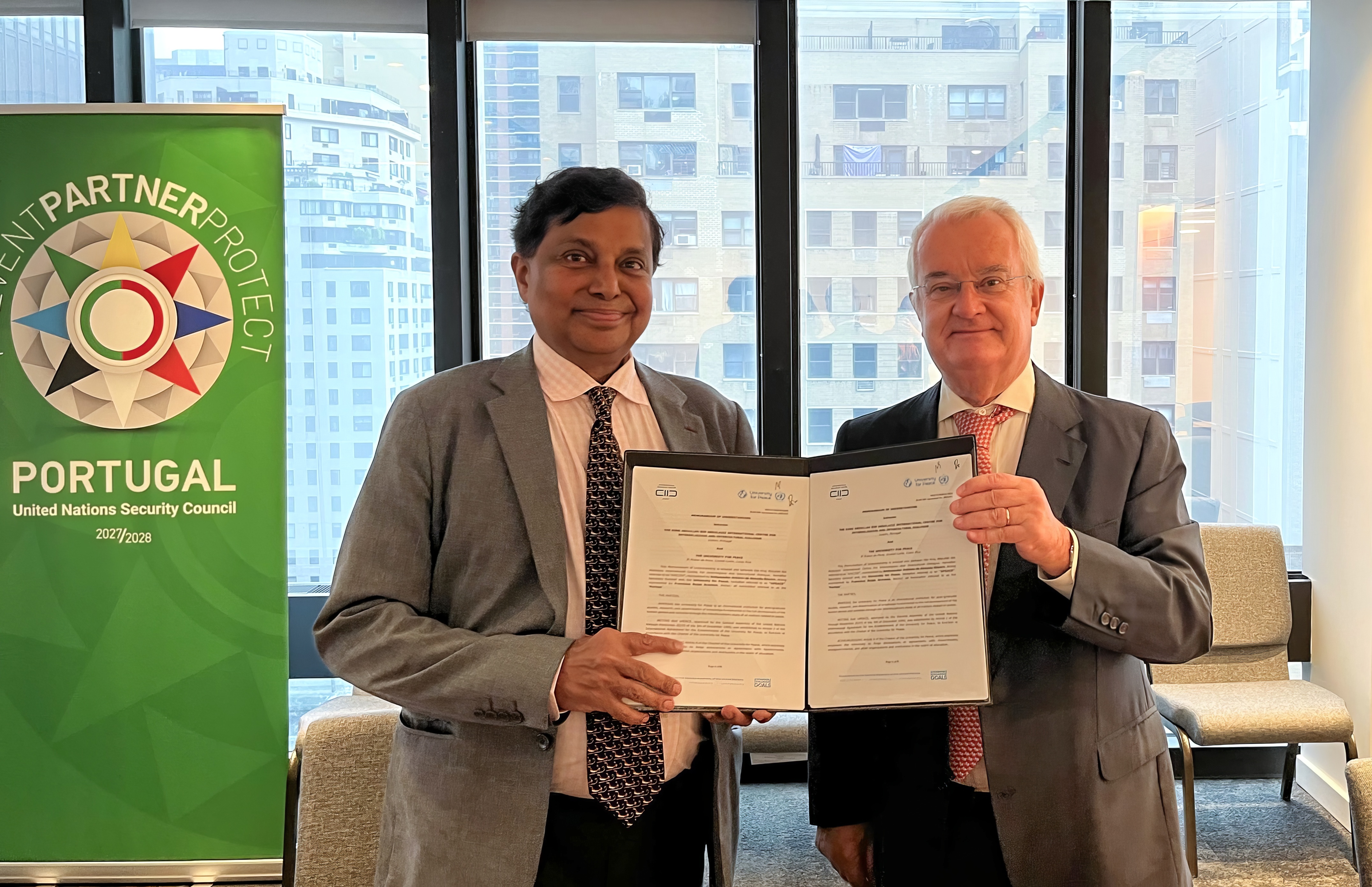
As member of the UNAOC Group of Friends KAICIID participated at the High-Level Meeting and a brief overview of UNAOC activities in 2025 was provided. A general discussion followed with interventions from the UNAOC Group of Friends Members.
Throughout the week, bilateral meetings with key stakeholders such as UN Women, UNOSAPG, UNAOC the Network for Religious and Traditional Peacemakers and the Permanent Mission of the Republic of Austria to the UN in NY opened pathways for future collaboration.
As the world navigates unprecedented geopolitical turbulence, the Centre’s mission is clear: to ensure that faith-based and multistakeholder cooperation become essential pillars of global peacebuilding
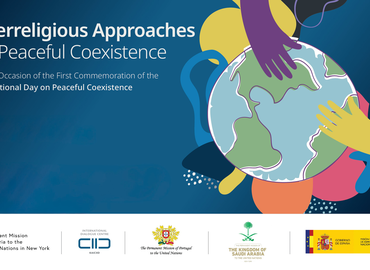
As discrimination, hate speech and identity-based violence…
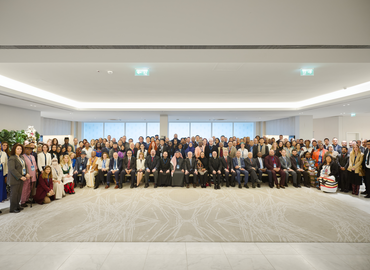
- KAICIID marks 10 years of global peacebuilding, uniting over 130 leaders in…

